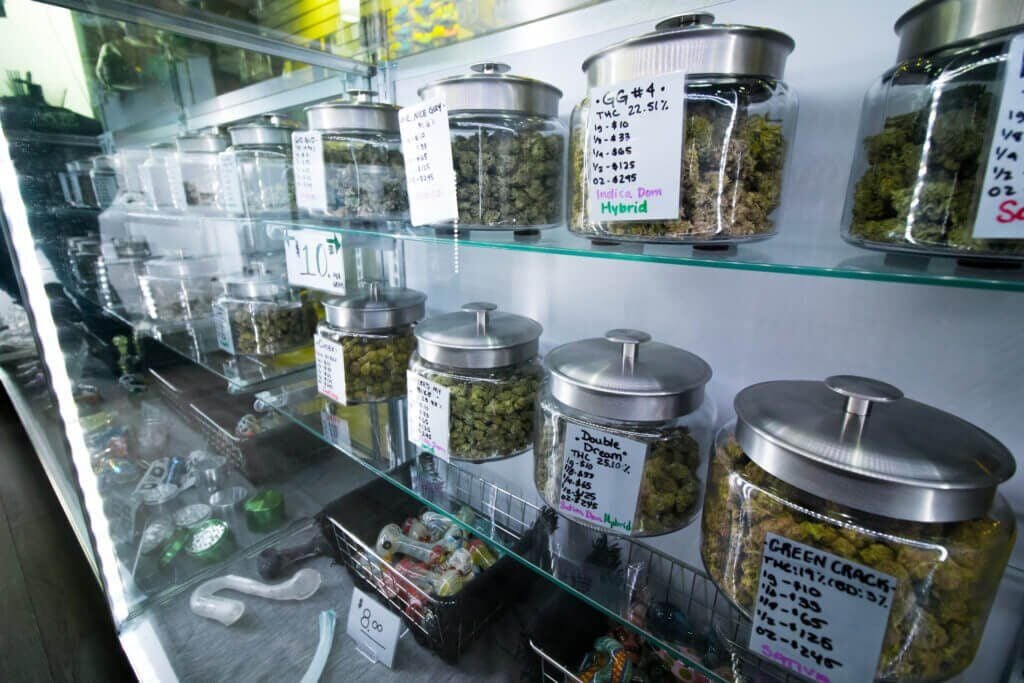3 min read
How to Easily Obtain an Online Medical Marijuana Card in Oklahoma
Obtaining a medical marijuana card in Oklahoma has never been easier, thanks to the convenience of online services. Whether you're a resident...
3 min read
 Dr Kaufman
:
Jun 22, 2022 12:00:00 AM
Dr Kaufman
:
Jun 22, 2022 12:00:00 AM

What if getting relief from pain and stress was easier than you ever imagined?
If you’re a resident of Maryland, you don’t have to continue suffering. Instead, you can achieve natural relief by getting your medical marijuana card.
Unfortunately, most residents don’t know how to get the card they need. Are you interested in getting Maryland medical marijuana? Keep reading to get all the answers you need!
By now, you probably understand that there are many benefits of medical marijuana. If you wish to take advantage of those benefits, though, you need to understand the state’s qualifying conditions.
Not everybody will qualify for a Maryland medical marijuana card. You will need to get a physician to certify that you have a particular qualifying condition (more on this later).
There are many qualifying conditions, including anorexia, glaucoma, severe pain, PTSD, severe nausea, and chronic pain. You may also be able to get medical marijuana in Maryland if you have another severe condition that you haven’t been able to treat and that marijuana may help with.
If you feel confident that you have a qualifying condition, the next step is to create your registry account. This means you must create a profile with the Maryland Medical Cannabis Commission Registry.
To register, you must provide your Social Security number, an identification that has your current address, and a passport-style photo taken within the last month. Additionally, you will need to pay a $50 fee via debit or credit card.
If your ID doesn’t have your current address, you can provide additional documents as needed to prove your Maryland residency. Once you successfully create your account, you will receive a verification email. You must click the verification link within that email to proceed.
The next step involves waiting. Specifically, you must wait for the Maryland Medical Cannabis Commission Registry to approve your application.
Once your application is approved, we recommend printing and safely storing the MMCC’s response. That message will contain both your username within the system as well as your patient ID number.
Keep in mind that you will need to renew your registration every three years, even after you receive your medical marijuana card.
Once your application is approved, it’s time to find a doctor. You can work with any doctor as long as they are registered with the MMCC.
Your doctor must verify that you have a qualifying health condition. Without this verification, you will not be able to get a card or purchase medical marijuana in Maryland.
If the doctor believes you have a qualifying condition, you will receive a written confirmation. The doctor will also send the official certification to your MMCC account.
After your doctor sends the certification in, the state will mail you a physical medical marijuana card. It may take this card around 90 days to arrive at your address.
The good news is that you can print a temporary card as soon as your doctor uploads your certification. This temporary card will let you purchase different types of marijuana through various dispensaries.
Keep in mind that you must make a purchase from the dispensary within 120 days of getting your doctor’s certification. If you do not make such a purchase, the certification will expire.
Once you have your card (either the printed card or the state-issued one), you can begin shopping at dispensaries. You can shop at any dispensary so long as it is licensed within the state of Maryland.
As with any other specialty store, it may take you time to find the dispensary you prefer. Some residents prefer dispensaries that are closest to their homes. Other residents prefer dispensaries that stock their favorite products.
Some dispensaries may offer additional services, including the delivery of cannabis products right to your home. This is a great option for those who can’t travel, such as those who are sick and relatively home-bound.
If you have never used cannabis before, you may be surprised to discover that there are many types of marijuana. It will take some trial and error to discover which strains work best for your symptoms and which types of products you prefer.
For example, there are two primary marijuana strains: indica and sativa. Indica often helps people sleep, whereas sativa is better for more active situations. And there are various hybrid blends that combine indica and sativa in different amounts. Eventually, you will find what works best for you.
Marijuana also comes in many different products. For instance, you don’t have to smoke flower if you don’t want to. You can also use gummies, edibles, vapes, tinctures, and so much more.
Over time, you will discover which strains and products work best for you.
Discovering what works best for you is simple. It usually comes down to a combination of your preferences and your circumstances.
For example, someone who lives in an apartment that forbids smoking should avoid flower. The same holds true for someone who has a partner or roommates who hate smoke.
Vaping is a great alternative to smoking flower. As a bonus, vapes are highly portable.
If you’re something of a “foodie,” edibles are a powerful way to combine tasty treats and helpful cannabis. And some people prefer to put THC tinctures or powders in their drinks as an alternative to drinking spirits or beers.
The most important thing is that you find what works best for you and for your health condition!
As you can tell, getting your Maryland medical marijuana card involves many steps. But do you know who can make the whole process easier?
At Doctors of Cannabis, we specialize in helping you complete the process and get the relief you need. To get started, all you have to do is learn more about our process today!

3 min read
Obtaining a medical marijuana card in Oklahoma has never been easier, thanks to the convenience of online services. Whether you're a resident...

Ohio’s medical marijuana program has opened new doors for patients seeking natural relief from a variety of conditions. Whether you’re new to medical...

8 min read
In 2020, economists valued the global, legal market for cannabis at $20.5 billion. Now, that market has expanded to almost every state in the...